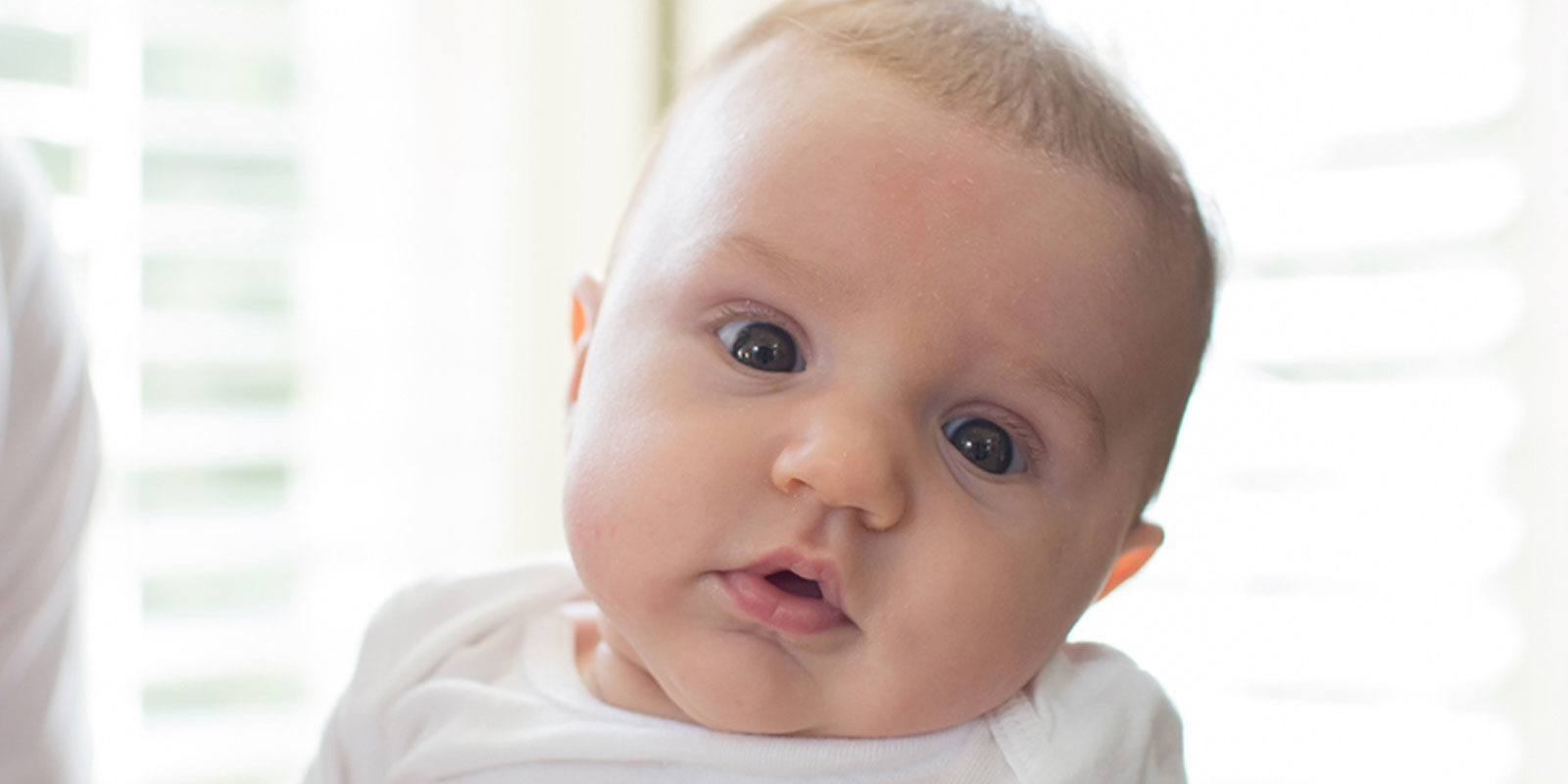So much happens in the first 18 months of baby’s life. From feeding to sleeping, physical growth and mental leaps – your baby is changing on a daily basis. It can be overwhelming to try and keep up, which is exactly why we’ve broken it down to give you an easily accessible resource based on topic. Of course, this isn’t all- encompassing, and we encourage you to use as many sources as possible to learn all about your little one.
In the Baby Guide, we’ll cover Feeding, Sleeping, Physical Development, and Mental/Emotional Development for full-term newborns up to three months of age.
First up was Feeding in the First 3 Months, after which came Physical Growth in the First 3 Months. Now, we’re sharing Mental Development 0 – 3 Months. Check it out!

When your little one first arrives in this world, they are unable to comprehend most of what just happened. They’re shocked, overwhelmed, and need to be held close. They also have no understanding of “sensory separation” – meaning they think their body is the same thing as the blanket wrapped around it. They simply do not know where they stop and something else starts.
Throughout the first three months, baby will have several mental growth spurts, where they experience accelerated development. Their head will get bigger figuratively and literally. During these times, baby may be extra clingy and upset and all the usual stuff to calm them (diaper changes, feedings, burping) won’t work. Now is the time to exercise as much patience as possible as well as engage with them in ways that reassure them, such as massaging them, playing with them and rocking them.
Learn What Colic is and How Dr. Brown’s Helps
Almost from the beginning, baby will recognize their parents’ voices, and as they grow, they’ll begin to learn faces and other voices, as well. They’ll be able to follow your face or other moving objects, as long as they are moving slowly. They’ll start to express themselves more, responding to silly voices and funny faces. They still won’t have the world around them quite worked out, struggling to individualize their senses. If they could speak, they might say that music you’re playing tastes wonderful. They also can’t seek out or find objects, so ensure that their Lovey or favorite toys are always close by.
Why Loveys are So Important to Developing Minds
By the end of three months, they’ll get quicker about responding to moving objects, and you’ll often find them chatting to themselves or their toys. Singing along with you or mumbling just to make noise may be a favorite pastime.
As always, every baby is unique in their mental development, so if your baby does not follow along with this mental growth guide – no worries! Just as with everything else, babies prefer to do things at their own pace. You and your pediatrician will know best when baby is moving on to the next developmental stage, so always keep them updated on baby’s mental milestones.
